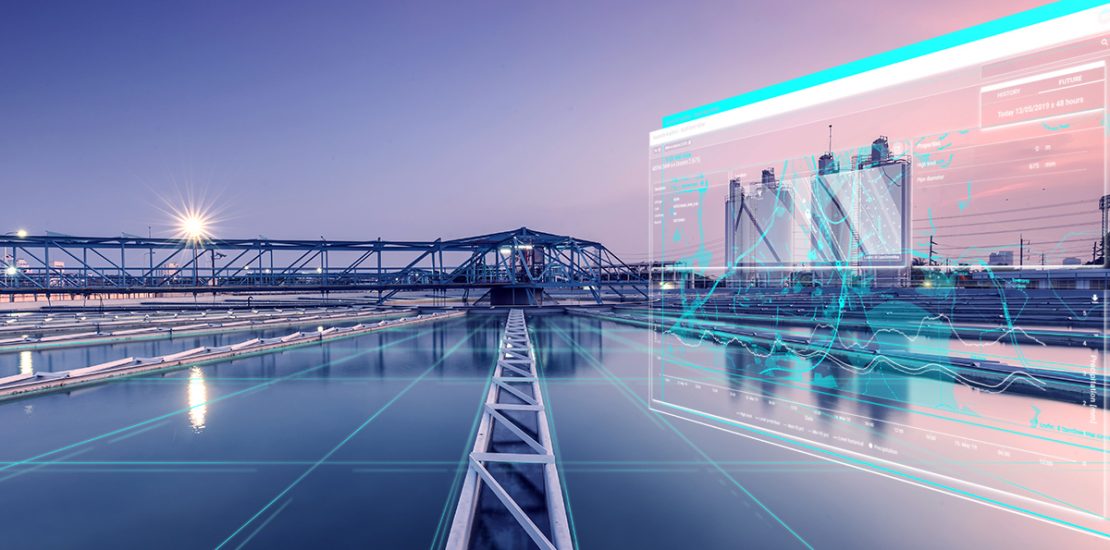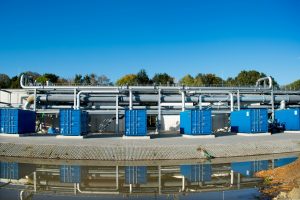Netherlands - WBL to create Digital Twin of its wastewater infrastructure with Royal HaskoningDHV Digital
- April 7, 2021
- Posted by: Elaine Coles
- Category: Companies, Technology & Innovation, Europe

The Waterschapsbedrijf Limburg (WBL), one of the 21 Dutch regional water authorities, is focusing on the digitisation of its 17 wastewater treatment plants and 149 sewage pumping stations.
Royal HaskoningDHV Digital will advise the water authority on this digital transformation which will make operations and maintenance smarter, more future-proof, and more efficient.
There are substantial challenges in wastewater treatment management: climate change, an urgent need for sustainability, and stricter regulations make transport systems and treatment plants increasingly technically complex. At the same time, a growing number of digital technologies can convert data streams into valuable insights.
WBL is focusing on the digital transformation of its wastewater treatment infrastructure, which will include the application of data science technologies such as machine learning and artificial intelligence.

The digital transformation will enable the water authority to make better decisions, take appropriate action more quickly, ensure that it continuously gets the most value out of its wastewater infrastructure, and optimise the cost efficiency of its operational management. Digitisation will also make business operations future-proof.
Remy Sleijpen, WBL Board Member commented:
“Over the years to come, WBL will take an essential next step in the development of data-driven business operations. By choosing Royal HaskoningDHV Digital, we have gained a partner with a valuable combination of expertise: in-depth knowledge of wastewater treatment management and digital know-how.”
Self-learning algorithms
The new collaboration between WBL and Royal HaskoningDHV Digital will consist of two parts:
- the development and implementation of a big data platform, which will collect data from the source systems at WBL
- the implementation of an Aquasuite machine learning application on this big data platform
Aquasuite will monitor the performance of all 149 WBL sewage pumping stations and will detect abnormal behavior at an early stage. It will show the information to the process operators in the Central Control Room of WBL in an intuitive manner.
By using machine learning for the entire system, its performance will improve continuously. It will also allow for more efficient management and anticipate the need for maintenance — the largest expense for water authorities. The Aquasuite application and the big data platform will be fully operational for all 149 pumping stations from September 2021.
Together they will form part of a digital twin, a virtual copy of the entire wastewater treatment system managed by the water authority. In the future, WBL and Royal HaskoningDHV Digital will add many other data science applications, including modules of the Aquasuite platform developed by Royal HaskoningDHV Digital.
Microsoft Azure as a Basis
The professional implementation and management of these rapidly developing technologies, which have to run 24/7 for operational support for operators and maintenance staff, places high structural demands on the cloud platform to be used. WBL has chosen Microsoft Azure for the implementation of the big data platform and the solutions for advanced machine learning and artificial intelligence. Royal HaskoningDHV Digital will partner with WBL over the next six years to develop and manage the Azure environment and deploy the advanced data science applications.
Aris Witteborg, leading professional in Digital Smart Water at Royal HaskoningDHV Digital said:
“We are delighted to partner with WBL to realise its progressive vision over the coming years. It fits seamlessly with our vision of the role of digital twins in the future management of wastewater treatment.”
